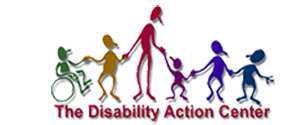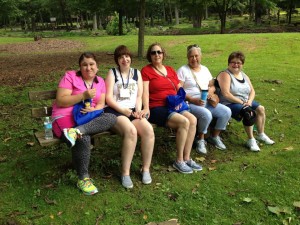Caring for the Caregiver
- 09, 22, 2016
- Category Uncategorized
- Posted By Julie Sole
- No Comments.
Imagine living at home with your aging parents. Imagine sleeping in the same bedroom that you shared with your sibling when you were 4 years old. Imagine not having your own space, bathroom, food, refrigerator, or transportation. Imagine relying on your parents for absolutely everything…where you go, what you eat, and who you see.
Now imagine being the parent, the caregiver for your adult child. Imagine dressing, feeding, and tending to the seemingly endless medical and therapy appointments of your adult child. The retirement life you once planned for has taken a detour due to responsibilities of caring for your loved one.
This is the reality for the vast majority of adults with disabilities and their families in the United States. Studies show that over 70% of adults with disabilities will remain living at home with their parents. More than 1/3 of adult children with disabilities living at home need assistance with self-care such as bathing, dressing, and preparing meals. The day to day struggles for the adults with disabilities and their families are very real. The parents struggle with the obligation to care for their children far into adulthood and worry what will happen after their deaths. The adult child struggles to find and forge their own identity while knowing they just can’t do it on their own. Many factors affect the quality of life of adults with disabilities including employment, emotional support, living situation, involvement in their community, and impact on their family.
Don’t let these statistics frighten you. It’s not all doom and gloom raising a child with a special need. Most families will also report a deep family connection and more cohesion, empathy, and bond in part to having a child/sibling with a disability. The key is knowledge, support, and resources. All of which are available at the Disability Action Center (DAC) and other related community agencies.
The DAC offers a variety of programs to support families experiencing these stressors and we strive to provide resources to all members of the family, not just the individual with a disability. In addition to a wide variety of education, health, and preparatory classes offered each month, the DAC has implemented the LIFE Project (Living Independently, Focusing on Empowerment). The LIFE Project takes an in depth look at the needs of adults with disabilities who either choose to live independently on their own, or choose to remain living in the home with their family but desire to have more independence, financial stability, employment options, and personality responsibility and self-direction. The LIFE Project expands the our general life skills subject matter to include sexual awareness, money management, budgeting, medical responsibility, driver’s education, emergency and safety, employment readiness and much more.
For the parents, guardians, and family members of individuals with disabilities, the DAC offers resource and referral services, individual classes, and family support workshops. These family support workshops/trainings, held 2-3 times yearly, focus on hot button topics such as Legal Guardianship and Conservatorship, Social Security Benefits, and Title 19 Waiver Benefits, and more.
The next workshop, “Care for the Caregiver/Compassion Fatigue” is slated for September 29, 2016 from 9 a.m. to 1 p.m. and is open to all families and the community. Offered in partnership with the WVU Center for Excellence in Disabilities, the training is geared towards professionals, parent/guardians, and families members who experience stress due to the responsibilities of caregiving. The training covers several strategies for self-care and ways to identify when and how to “put your own oxygen mask on first.” Included are strategies for family members and professionals to recognize such needs in themselves and one another, and how to work together to maintain healthy support systems.
Whether you are a new parent attempting to navigate therapies and IEP’s in the school system, or an aging parent that is looking for assistance planning for life after you are gone, the DAC can provide you and your loved one with the resources you need to reach the greatest level of independence, personal satisfaction, and overall quality of life that everyone needs and deserves.
For more information on DAC programs you can visit www.disabilityactioncenter.com or call 304-366-3213 to schedule a tour and individual planning session.
Categories
Archives
- June 2025
- April 2025
- February 2025
- December 2024
- October 2024
- August 2024
- June 2024
- April 2024
- February 2024
- December 2023
- October 2023
- September 2023
- August 2023
- June 2023
- April 2023
- February 2023
- December 2022
- October 2022
- August 2022
- June 2022
- April 2022
- February 2022
- December 2021
- August 2021
- June 2021
- April 2021
- March 2021
- February 2021
- December 2020
- October 2020
- September 2020
- August 2020
- June 2020
- May 2020
- April 2020
- March 2020
- February 2020
- December 2019
- October 2019
- August 2019
- June 2019
- April 2019
- February 2019
- January 2019
- June 2018
- October 2017
- May 2017
- September 2016
- January 2016
- October 2015
- May 2015
- January 2015
- October 2014
- September 2014
- July 2014
- March 2014

